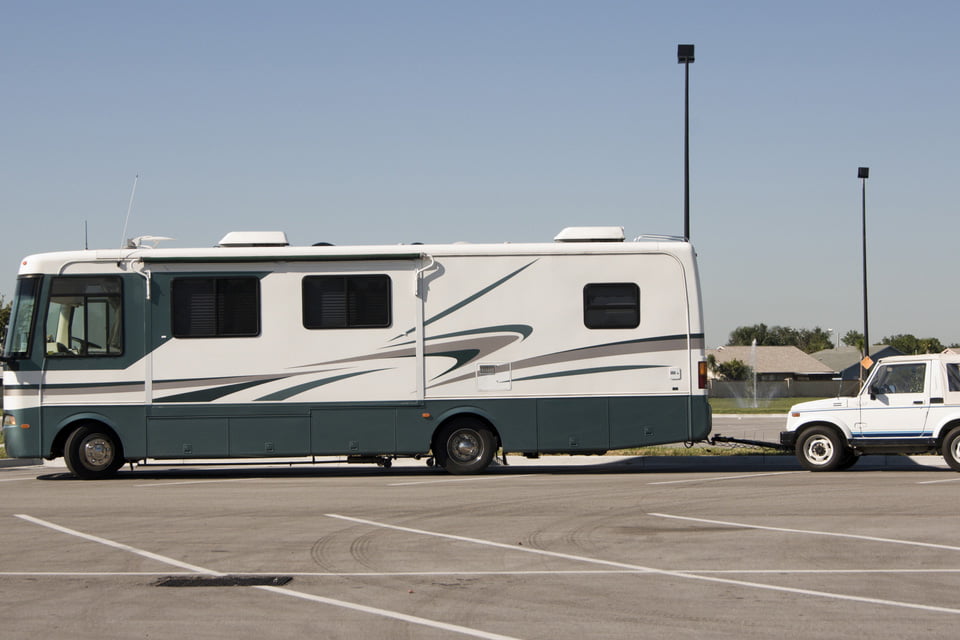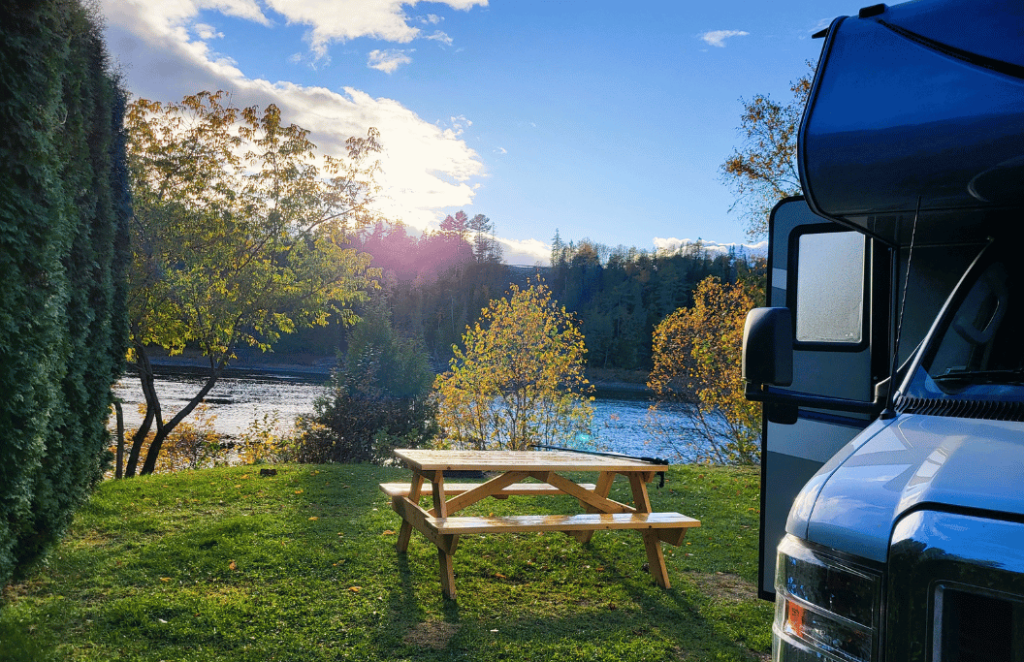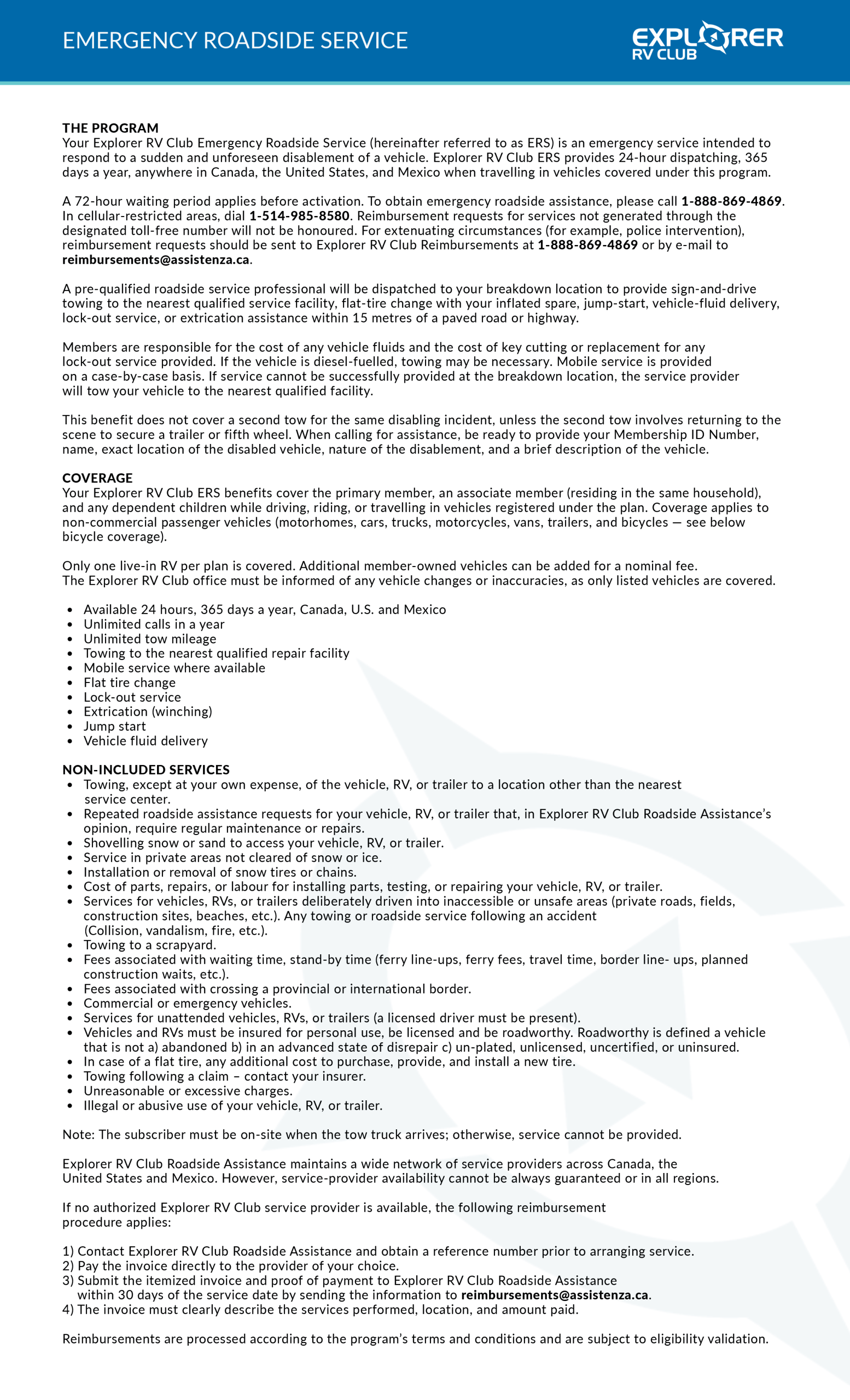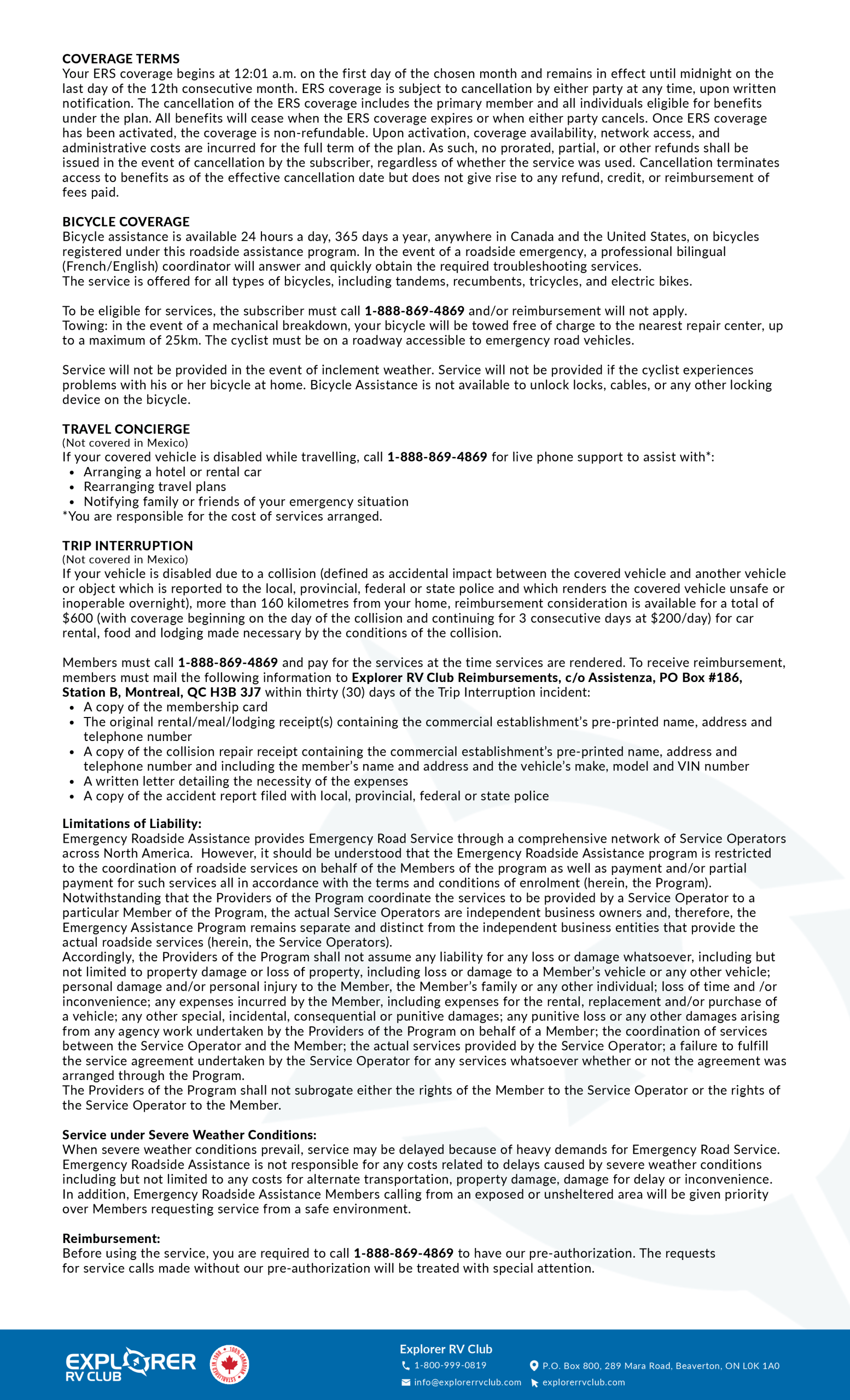Whether you’re taking your RV on a long journey to a particular destination, just aimlessly cruising the highways and byways of America, or just looking for a place to hang out close to home for the weekend, you’ll be in need of free or cheap places to camp or just park for the night. After all, you already have money invested in your RV, whether purchased or rented, and you need bucks to spend on the road and at your destination, so you want to save on the way. Luckily there’s no lack of free and inexpensive places to meet your needs on both public and private properties. With a little creativity and research, you too can enjoy an RV experience that won’t break the bank.
Boondocking For Free
Parking or camping for free involves doing without amenities like electricity, water, and sewage hookups, usually just for a night or two, on property outside of regular campgrounds. In RVing lingo this is commonly known as ‘boondocking’ but is also called ‘dispersed camping’ or ‘dry camping’. This type of camping requires some preparation. You want to be sure you have your water tank filled, your black and gray tanks emptied, plenty of food and other necessities, and either solar panels or a generator if you want power. Here’s a not-so-comprehensive list of places that are generally free to park overnight, although it’s always a good idea to ask permission, and a few require it.
- Walmart – Some aren’t allowed to let RVers stay overnight because of city ordinances. Ask before you park.
- Truck stops
- Grain elevators – Probably a good idea to ask the best place to park.
- Cemeteries
- Fraternal organizations – VFW, Elks, etc., ask for permission, might be members only.
- Fairgrounds
- Churches – Ask for permission first.
- Hotels and motels – Often not a problem, especially if you use their lounge, but ask for permission first.
- Cracker Barrel restaurants
- Parks
- Rest areas
In general, federal public lands allow parking within a certain distance of an established roadway unless it’s restricted in that area. Some areas have specific rules, so it’s best to check it out beforehand.
Big farms and ranches will often be amenable to letting you park on their land if you ask nicely. Surprisingly, boondocking has been the subject of a bit of controversy in the RV community, with some people arguing that it takes profits away from RV parks. And be aware that some municipalities have banned the practice altogether. So remember, ask if you’re not sure, be nice and considerate, and you should be welcome at most places.
Boondocking and Inexpensive RV Camping Resources
Although free and inexpensive camping and parking sites are numerous across the U.S. you’ll need to do some research to find the best ones for your trip. Luckily this is easier than ever in the age of the Internet. Below are some of the best online resources for thrifty RVers. Some of these are more specifically aimed at boondocking.
RV Camping – A great site chock full of info for finding boondocking camping sites as well as RV parks, and other subjects of general interest to RVers.
Boondockers Welcome – A service that connects RVers with other RV enthusiasts who own property and will allow free parking. Currently has over 800 members in the U.S. and Canada. A membership fee $30 per year is required.
Casino Camper – Focused exclusively on casinos that allow free parking for RVers on the premises. Many do of course, because they’re hoping you come in and spend your money.
Escapees RV Club – For an annual fee of $39.95, you’ll get at least a 15% discount at any of almost 1,000 participating RV parks. This nationwide club has local chapters that are quite active, hosting get-togethers and group road trips. The organization also runs 19 parks for year-round residents.
Paths Across America – The U.S. military offers camping on bases and other DoD properties across the nation. Open to active duty service people, civilian employees, and retirees. Call ahead for reservations.
Passport America – One of the better discount clubs for RVers. For a $44 annual membership fee, you can get a 50% discount at nearly 1,800 campgrounds across the U.S., Canada, and Mexico. Some of the campgrounds have rules about how they apply the discount though, for instance only on weekdays or only one night per month.
Campendium – Kind of like a Yelp for campers. See star ratings and reviews for campgrounds all over, as well as a section for free camping.
AllStays – This app costs $10 to purchase, but it has a lot of information that will be useful to RVers on the road, and gets good reviews. The website also has some useful free information, as well as links to other paid apps.
Harvest Hosts – Another RV club, this one focuses on free camping sites at wineries, breweries, farms, museums, attractions, and other types of properties in the U.S. and Canada. They do ask that you buy something from your host, but it’s not required. A one year membership is $79, and a golf oriented plan is $119 per year.
U.S. Forest Service – Lists the rules and regulations for dispersed camping outside of designated campgrounds.
U.S. Bureau of Land Management – Rules and regs for both developed and dispersed camping on BLM properties. You’ll have to open the file.
U.S. National Park Service – Lists a variety of free passes available for national parks, as well as Bureau of Reclamation, BLM, and U.S. Army Corps of Engineers properties, for seniors, fourth graders, military members, volunteers, and those with disabilities. Passes cover entry, amenity fees, and daily fees for a driver and all passengers in a vehicle. Children under 15 are free.
These are just a handful of the resources available online to help you find free and inexpensive RV camping spots. It’s also a good idea to join some RV forums and get some advice from your fellow enthusiasts. With a little research and ingenuity, you can have a wonderful trip and save a bundle too.






